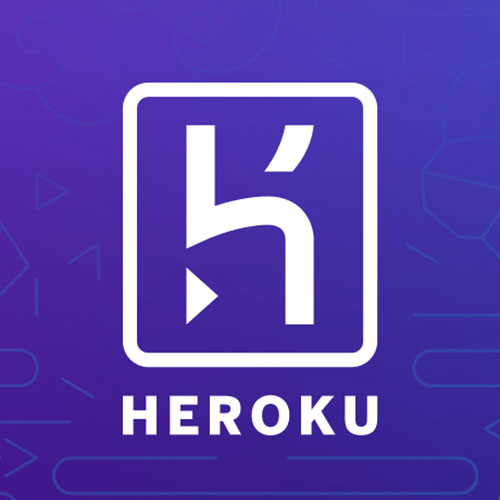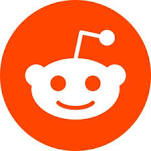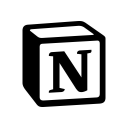Left My 7-Figure Job At Apple To Start My Career Consultation Business [$10K/Month]
Hello! Who are you and what business did you start?
Hi, my name is Leon Wei. I am the founder of instamentor.
I launched instamentor.com in Jan 2021, shortly after leaving my 7-figure job at Apple.
We are a job interview coaching platform helping young professionals and fresh college graduates to break into the tech industry.
Our customers can easily book a paid 1:1 coaching session with an experienced industry mentor (many of whom have worked as a hiring manager from a FAANG company), and learn from them to better plan their job interview preparation.
We also provide career consulting to help people make better career decisions, such as whether to pursue a data scientist job or a data engineer job, and avoid the same mistakes our mentors had made.
We've helped hundreds of customers land their dream job offers and are currently at $120K annual revenue.

What's your backstory and how did you come up with the idea?
In 2019, LinkedIn launched a product called 'career coach.' (eventually closed)
I signed up for the program and became a mentor to offer my free time to give career advice.
However, I quickly ran into many problems with that platform, and I had to drop off myself after a few months.
- I was overwhelmed with demand, many people want to talk to me partly because the service is free;
- Customers were not taking it seriously. Some of the mentees canceled my meeting 10 mins before the scheduled time. Sometimes people just didn't even show up;
- The matching algorithm was immature, I was matched with many people that are completely not a good fit.
From the positive side, I have seen many repeatedly asked questions such as:
"Which areas should I focus on preparing for an upcoming Facebook data scientist job interview?"
"Hey, you've been working at some of the best tech companies in the world, how did you get in?"
"I just graduated with a Ph.D. in physics, but I lost my interest in doing more lab work, how can I transition into a data scientist role, after all, I love data."
"I have a passion for deep learning, but which area should I pursue, from an industry and career perspective?
i.e., NLP (natural language processing) vs Computer Vision (such as autonomous cars)."
At that time, I had another side project, sqlpad.io, which helped people learn SQL. Many of the sqlpad customers also reached out to me asking for help with their job interview preparation once they finished the SQL course.
So I added a paid coaching program on sqlpad.io for whoever needed coaching.
And quickly, many customers signed up for the paid 1:1 coaching session with me.
After that, I was confident that I'd validated the idea from the demand side, but I needed to find more qualified mentors from the supply side to make the business sustainable.
Take us through the process of designing, prototyping, and manufacturing your first product.
To find the initial list of mentors, I emailed 20 of my best friends, many of whom have worked in the tech industry's top companies for a while.
Half of them liked the idea and agreed to sign up as a mentor for the beta testing.
The core assets of the instamentor are the group of world-class mentors, so for the MVP, I focused on a mentor's profile.
It took me about two weeks to finish up a profile editor, where a mentor can easily edit and update their work experience, accomplishments, and the types of coaching they want to offer.
After that, I added a payment plan so a mentor could name their prices and get paid.
After 20 days of 10 hours/day coding, the mentor profile page editor is ready to be tested.
There were a few screenshots of what the UI looked like:


Once I launched my mentor page, I invited my friends to sign up, and many of them gave me great feedback.
For example, one of my friends recommended that I add a discounted introductory call service to give customers a chance to get to know their mentor.
And it turned out to be one of the most popular sessions.
At that time, the homepage's copy still needs to be polished but the core selling point: a group of experienced mentors with a ton of industry experience
Describe the process of launching the business.
I didn't plan the initial launch that much, because I wanted to get feedback from real customers fast.
As Reid Hoffman (LinkedIn co-founder) famously put it: "if you are not embarrassed by your first version, you launched too late".
I made the announcement on LinkedIn that I was leaving Apple to focus on a career coaching platform called instamentor.com.
It can take a long time to get your first paid customer, but consistency and perseverance will help you get there.
It was around the end of Jan 2021, I had about 2000 followers on LinkedIn at that time, and within a few days, I received about 20 inquiries about our coaching program, and sold 5 paid sessions for $99 each, I knew this platform had a potential.
The launch was not a huge success, but based on the initial feedback I received from both the supply side and the demand side, it was overwhelmingly supportive.
Since launch, what has worked to attract and retain customers?
I've tried different marketing channels to promote instamentor and get the word out, but most of them failed.
Failed attempts:
1) mentor podcast
The idea was that every mentor has a great success story, and if we can share it with our potential customers, it will help people build trust with a mentor who they have not met.
I made 6 episodes, and I was completely overwhelmed with the amount of work that is required, at that time I have another side project and I simply cannot consistently produce enough podcasts regularly.
The audience who tuned in to our podcast all gave us 5 stars reviews, however, it's just too much work for me as a solopreneur, so I had to pause it.
2) Paid ads
Ran Facebook Ads with a daily budget of $20, had a few thousand impressions but 0 conversions, and gave up after 3 months.
Succesful
3) Reddit
This turned out to be the best channel to get my first 100 paid customers. I spent almost 2 hours every day during the initial launch answering career-related questions and organically mentioning our platform when there was a fit.
It was very time-consuming so I spent a weekend and wrote an NLP script that automatically notifies me whenever there is an interesting topic that I can engage with.
Try your best to launch as soon as possible, and talk to your customers as much as you can, especially during the initial launch.
4) SEO
This turns out to be the most effective and scalable channel for customer acquisitions.
I've written about 70 articles since its launch, an average of 1.5 articles per week. It does take a while before Google started to take notice and start sending quality traffic to my website, and now content marketing is my #1 focus.

How are you doing today and what does the future look like?
Instamentor.com is profitable and we are at around 10k-15k per month revenue. I was the only FTE at this moment with 30 part-time mentors to take care of our customers.
I spend most of my time mentoring people and trying to figure out the product features, and every week I tried to write two articles and share them with our email subscribers.
Through starting the business, have you learned anything particularly helpful or advantageous?
The #1 biggest mistake that I made was probably spending way too much time on useless features (mostly cosmetics) on the website.
Instead, I should focus on things that are moving the needle such as high quality, career advice, or job interview preparation-related content to drive SEO traffic.
Nowadays I have started using Notion and zenhub (a GitHub plugin) to plan for my monthly product tasks and to-do list.
I try to ruthlessly remove unnecessary product features or deprioritize them if they are just 'nice to have.
The best decision I've made is to bootstrap the business instead of getting funded and hiring a team before figuring out what problems to solve.
With limited resources (time and marketing budget), I had to stay humble, think hard about where to spend my time and energy, and prioritize my daily tasks ruthlessly.
Sometimes the daily job becomes mundane, and when I am not that motivated, I usually go out for a jog to run 3-5 miles to clear my mind.
What platform/tools do you use for your business?
I coded up the entire platform with Django and Heroku, our email backend is mailgun,and I've been using Medium to manage my email subscribers.
I cross-post almost all of my contents to Medium and add the canonical link back to instamentor.com, and use Medium to manage all my email subscribers (it's free with very limited functionality but I didn't have time to explore more advanced tools such as convert it or MailChimp yet).
What have been the most influential books, podcasts, or other resources?
Indie Hackers has been a great website to find inspiration, get motivated, and find similar-minded entrepreneurs.
Fun fact: I even scraped the last 4 years of all high-quality articles and made a free Chrome plugin to be able to read them if they are related to the current post I am reading. You can try it free if you are intested.
Podcasts : the SAAS podcast by Omer Khan, the indiehackers podcast by Coutland Allen, and The Startups For the Rest of Us Podcast by Rob Walling
Books: the Mom test, the hard thing about hard things, Shoe Dog
Advice for other entrepreneurs who want to get started or are just starting out?
Add a price tag as early as possible to 'truly' validate your product idea.
Focus on the 'ideal' customers who take you and your product seriously, ignore those who simply are just wasting your time (signs: asking for more product features, or kept asking for more coupons).
Try your best to launch as soon as possible, and talk to your customers as much as you can, especially during the initial launch.
Spend more time on marketing than working on your product.
It can take a long time to get your first paid customer, but consistency and perseverance will help you get there.
Are you looking to hire for certain positions right now?
We are actively hiring in two types of roles:
parttime mentors: people who have already figured out a path to success, and are willing to share their experience with young professionals.
content marketer: since 80% of our traffic came from content marketing, I am planning to hire a remote content marketer to help write high-quality content for career advancement and job interview preparation.
If you are interested, please email me (and attach your LinkedIn page).
Where can we go to learn more?
If you have any questions or comments, drop a comment below!

Download the report and join our email newsletter packed with business ideas and money-making opportunities, backed by real-life case studies.

Download the report and join our email newsletter packed with business ideas and money-making opportunities, backed by real-life case studies.

Download the report and join our email newsletter packed with business ideas and money-making opportunities, backed by real-life case studies.

Download the report and join our email newsletter packed with business ideas and money-making opportunities, backed by real-life case studies.

Download the report and join our email newsletter packed with business ideas and money-making opportunities, backed by real-life case studies.

Download the report and join our email newsletter packed with business ideas and money-making opportunities, backed by real-life case studies.

Download the report and join our email newsletter packed with business ideas and money-making opportunities, backed by real-life case studies.

Download the report and join our email newsletter packed with business ideas and money-making opportunities, backed by real-life case studies.












